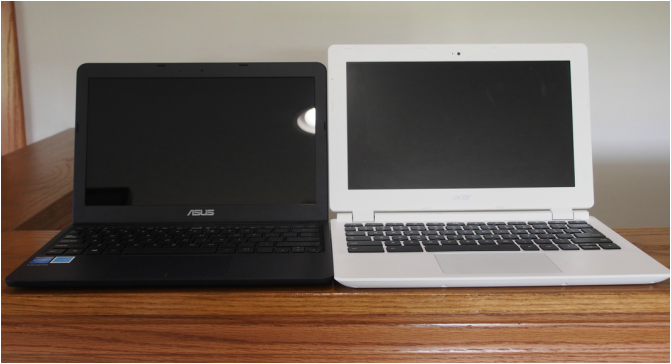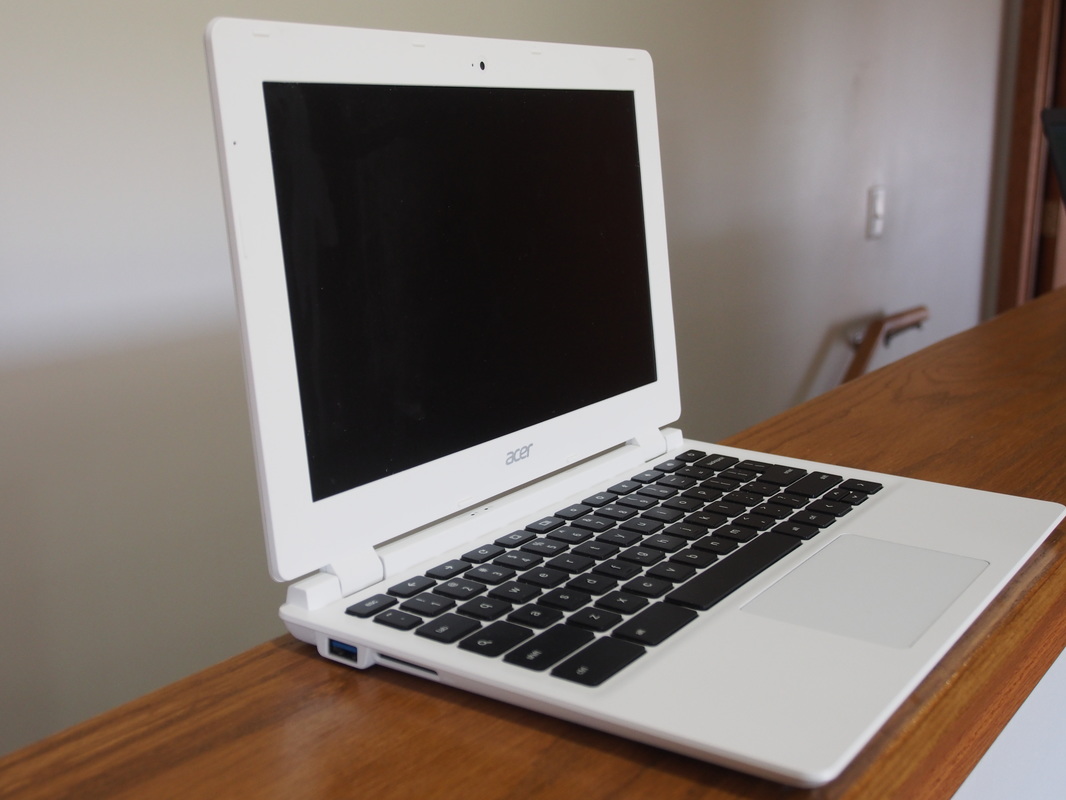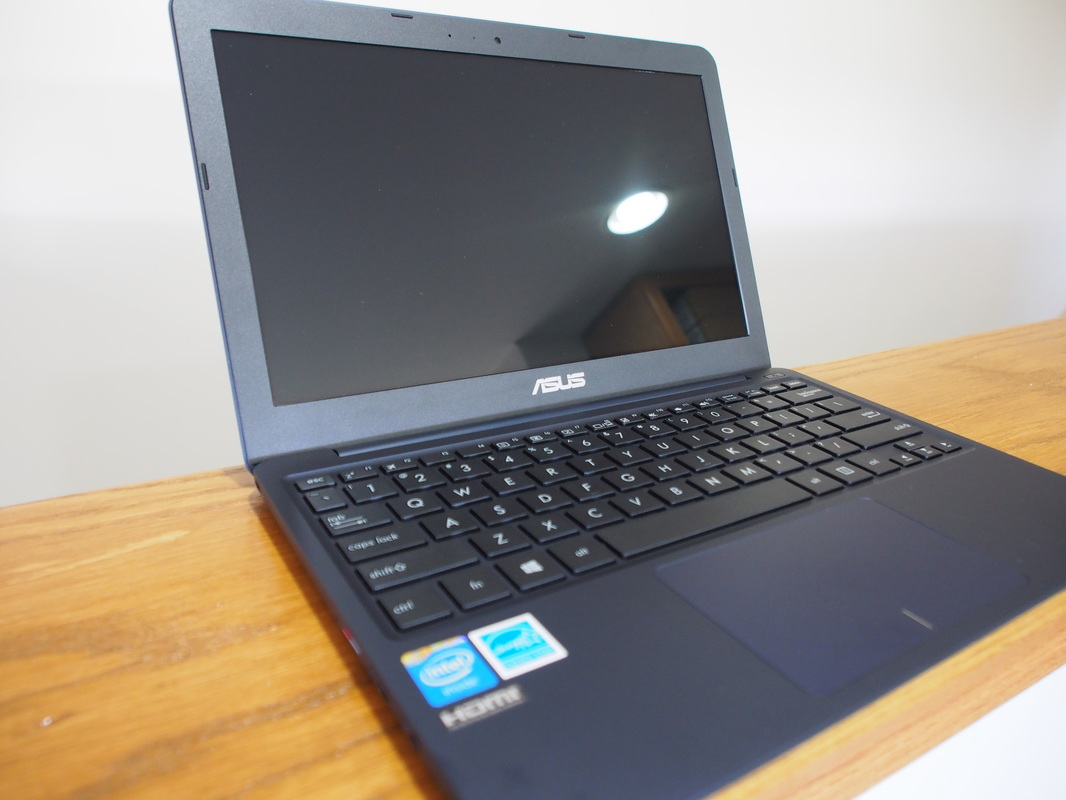But Microsoft took notes. Good ones. Despite the commercial reaction to Windows 8, it did use much fewer resources, and the 8.1 upgrade made Windows a little more like Windows 7 and even quicker. With the hardware requirements now about the same, Windows is making a big play to gain back the ground it lost to Google, but Google is putting up a fight. And now to the big question - can Windows sell computers in Chrome's price range to give users more usability or is Windows still too resource hungry to be productive without more expensive hardware?
I purchased the machines below from a local Best Buy. Both were $129.99 new and on sale. Neither has been modified in any way. I picked them based on two things. The first of these things was their stupid low price - an area ChromeOS has dominated. The second was the screen size was in the 11" range. For me, that's the size where a laptop becomes a usable machine. Now that we have that out of the way, let's get on with the show.
The Hardware
- Chrome OS™
- Intel Celeron N2830 Dual-core 2.16 GHz
- 11.6" HD (1366 x 768) 16:9
- Intel HD Graphics with Shared Memory
- 2GB, DDR3L SDRAM
- 16GB SSD
- Comes with 100GB of Google Drive space (for 2 years) and Google Docs
- Windows 8.1™
- Intel Atom Z3735 Quad-core 1.33-GHz
- 11.6" HD (1366 x 768) 16:9
- Intel HD Graphics with Shared Memory
- 2GB, DDR3L SDRAM
- 32GB SSD
- Comes with 1TB of OneDrive space and Office 365 (for one year)



 RSS Feed
RSS Feed
